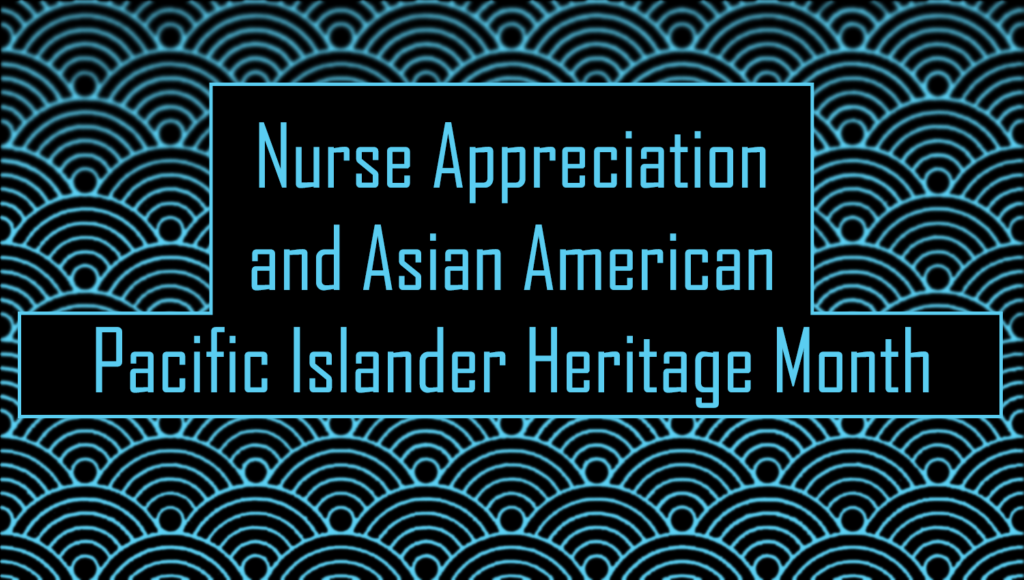The history of healthcare branches far and wide. As time marches on, the details of progress have a habit of getting lost or buried, so the names and personal stories of healthcare’s most extraordinary people are often looked over.
As this month is Asian American Pacific Islander (AAPI) Heritage Month and Nurse Appreciation Month, we would like to take a moment to recognize three dedicated AAPI professional nurses who have changed healthcare as we know it.
The Dean of Philippine Nursing

Her story is distant, having taken place in the early 1900s, but the impact she had on the world of medicine is still felt today. Anastacia Giron-Tupas got her nickname of ‘Dean of Philippine Nursing’ as she was responsible for developing the first bachelor’s in science in nursing (BSN) curriculum. While a noteworthy accomplishment on its own, it is certainly not all that she did for nursing as a profession.
Giron-Tupas believed strongly that nurses were an underutilized tool for improving the general welfare of the people and took it upon herself to seek higher education in the United States to prove it. An American nursing education was necessary during this time to hold positions of power, so Giron-Tupas self-funded her trip to the US to study, something that very few women did at that time.
When she returned with her certificate in nursing, she was able to pursue positions of leadership, such as the positions of chief nurse and superintendent at Philippine General Hospital, which she held jointly, which made her one of the most influential nursing leaders at that time.
During her time in power, Giron-Tupas worked with diverse committees to strengthen medical culture and practice in the Philippines. She helped create laws that regulated nursing practices, created the Philippine’s first postgraduate public health nursing program, and fought to protect women in healthcare, regardless of marital status, race, or background.
While her career should have been publicly recognized and thriving, it was largely hidden under the name of her American counterpart, a temporary nurse advisor from the Rockefeller Foundation named Alice Fitzgerald. Despite many years of initial allyship, coming together to rewrite the world of medicine, Fitzgerald decried Giron-Tupas, writing her off as lacking in competence and, ultimately, replaceable, which led to Giron-Tupas’ early retirement from leadership. Thankfully, Giron-Tupas’ work has been recognized properly since then, ensuring that her efforts will not be forgotten.
Diversity in Nursing
Rose Luey, or Rose Lim Luey, is a much more recent name, having become highly influential around the Vietnam War. Her illustrious career included titles such as Disaster Nurse Chair of the American Red Cross (Oakland Chapter), founding member of Asian Health Services, Alameda County Health Care Services, and a bilingual Public Health Nurse (PHN), and, in more personal terms, she was also awarded the City of Oakland’s Mother of the Year award.
Luey’s professional work is stacked with achievements beyond her basic titles. She took time to save healthcare programs, reorganizing dying programs to ensure that they would withstand time, so much so that the elements of the protocols she drafted were used for the state’s programs as well.
Using her multilingual talents, Luey served as a mediator between immigrants and the US healthcare system, ensuring that those fleeing war or needed treatment would be properly cared for. As a child of immigrants herself, she could connect, in some sense, to what her patients were experiencing.
Her volunteer work and extensive humanitarian efforts created an example of the importance of representative care. Her ability to care and understand her patients, both in terms of plight and language, made her incredibly effective and set the precedent that representation matters in all walks of life.
The Publishings of Yu Xu

Yu ‘Phillip’ Xu was a Chinese immigrant who came to the United States in 1991 to complete his PhD. He started in Buffalo, New York to complete his PhD in education and Xu followed it with an associates in nursing soon after. His mixed education would soon become invaluable.
Xu was not known for his social status or public acknowledgement outside of the medical community. Instead, his greatest claim to fame came from 56 research reports and peer-reviewed articles on tradition, adaptation, and integration of international nurses in the US healthcare system. Xu opened the eyes of many people, largely those who had become complacent in a system that worked in their favor.
His work was socially revolutionary and we are still seeing the ripples from this social change branch out in the growing diversity of the healthcare field at nearly all levels of leadership. Xu was a dedicated and passionate nurse, working through his writing, or as the director of Las Vegas’ PhD nursing program, or in his role as the head of AAPI Nurses Association until his untimely death in 2013 due to a battle with cancer. His work has been seen and felt, but it is up to us to ensure that the credit is given where it is certainly due.
The COVID-19 pandemic has made it clear that nurses are essential to our healthcare system. Every day, hundreds and thousands of Americans from a variety of different races, cultures, and backgrounds go to work as nurses, caring for the general population in a variety of ways. There are a great many ways to return such efforts, but as this month is AAPI Heritage month, look for ways to educate yourself and others on the extraordinary efforts of AAPI persons from history and today.
If you are looking for a new career opportunity in healthcare, then click here to check out our job board! If you are looking for something different than what you see on the board, then submit your updated resume here and we will connect with you as soon as possible.












